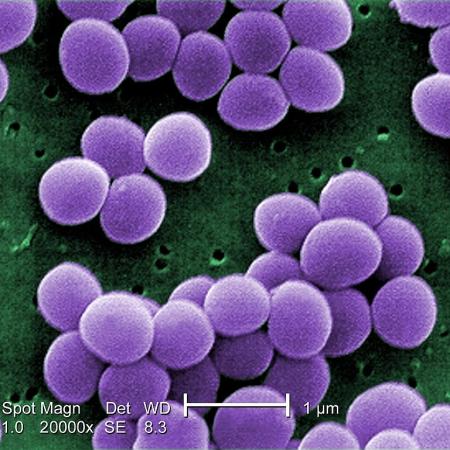
Antibiotic resistance is currently a serious health problem. Since the discovery of new antibiotics no longer seems to be a sufficient tool in the fight against multidrug-resistant infections, adjuvant therapy is gaining importance as well as reducing bacterial virulence. Silymarin can be found in milk thistle and is a complex of flavonolignans known for its broad spectrum of biological activities, including its ability to modulate drug resistance in cancer.
Infections by Staphylococcus aureus cause severe diseases with high morbidity and mortality. Since the discovery of new antibiotics seems to be no longer sufficient in the fight against those infections, it is very often replaced by adjuvant therapy, where the mechanism of resistance is specifically inhibited, and the previously ineffective antibiotic regains its antimicrobial effects. Flavonolignans have shown promising potential in this treatment approach. Authors of a recent study published in Biomedicine & Pharmacotherapy focused on the ability of flavonolignans to inhibit intercellular bacterial communication and inhibit bacterial cell adhesion to the surface.
Researchers from the University of Chemistry and Technology in Prague found that in particular, optically pure flavonolignans have great potential as adjunct therapeutics in the control of Staphylococcus aureus infections. Flavonolignans have no or negligible toxicity, and have no antibiotic activity of their own, precluding the development of resistance. Flavonolignans have been part of the human diet for centuries, and have no adverse health effects. Numerous studies have demonstrated that flavonolignans have potent anticancer effects, and can restore the susceptibility of drug-resistant cancer cell lines. The research paper also highlights the need for the use of pure stereomers in the evaluation of biological activities.
“More attention should be paid to these compounds as they show promise for adjuvant therapies and reduce the virulence of antibiotic-resistant bacterial strains.“ says doc. Ing. Jan Lipov, Ph.D.

Text is based on the research article:
Kateřina Holasová, Bára Křížkovská, Lan Hoang, Simona Dobiasová, Jan Lipov, Tomáš Macek, Vladimír Křen, Kateřina Valentová, Tomáš Ruml, Jitka Viktorová, Flavonolignans from silymarin modulate antibiotic resistance and virulence in Staphylococcus aureus, Biomedicine & Pharmacotherapy, Volume 149, 2022, 112806, ISSN 0753-3322, https://doi.org/10.1016/j.biopha.2022.112806

